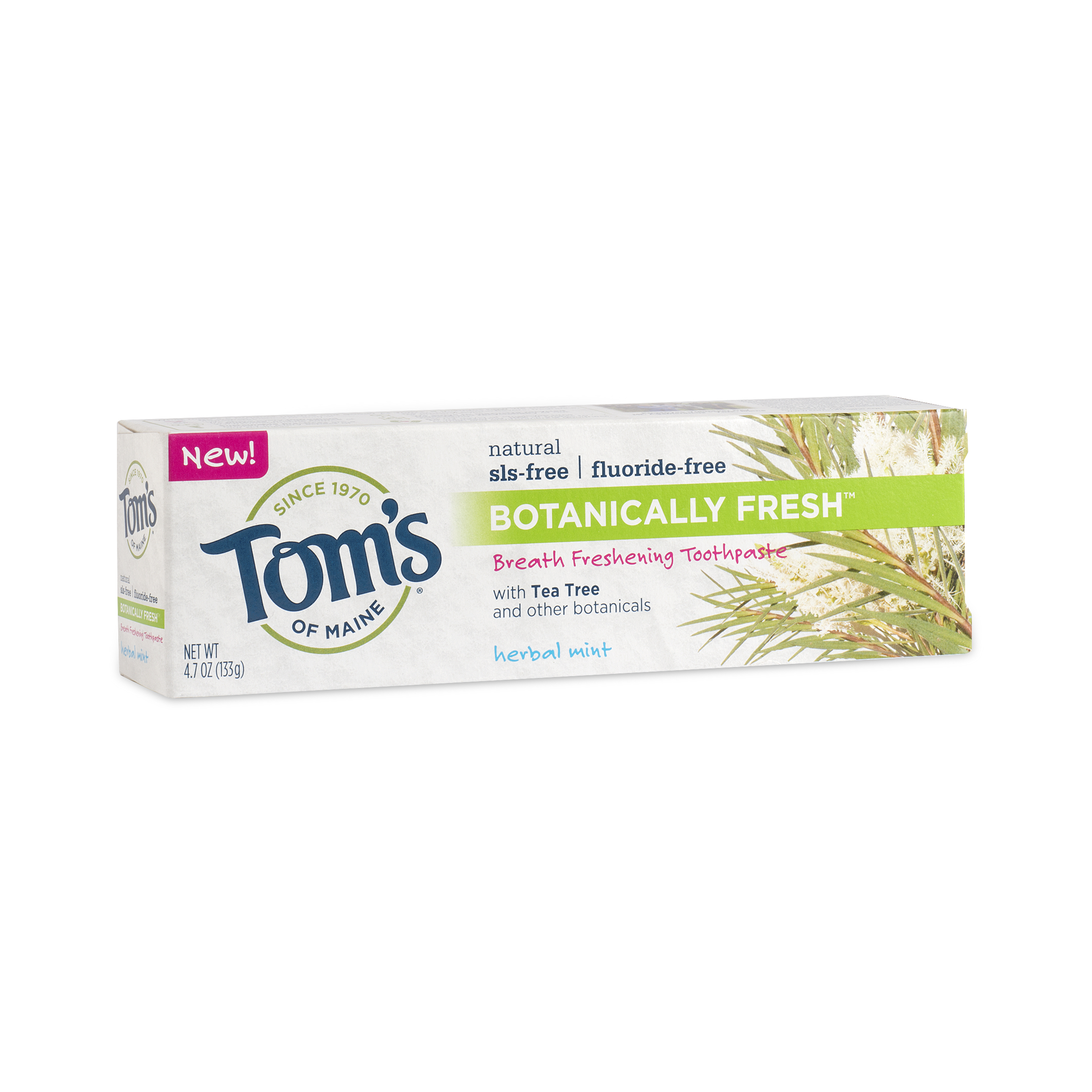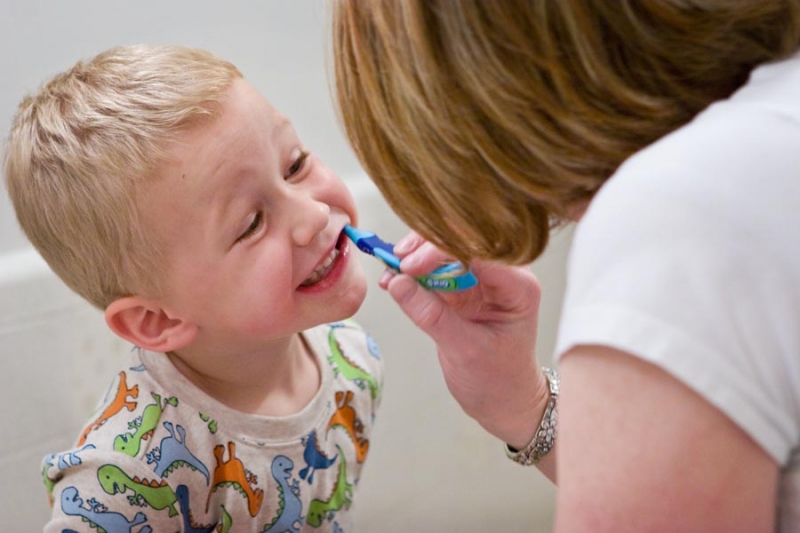 There are certain ingredients in personal care that have become buzz words of caution. Carrageenan, sodium lauryl sulfate (SLS), 1,4-Dioxane, fluoride, and nanoparticles are just a few examples. SLS is a common natural ingredient to avoid.
There are certain ingredients in personal care that have become buzz words of caution. Carrageenan, sodium lauryl sulfate (SLS), 1,4-Dioxane, fluoride, and nanoparticles are just a few examples. SLS is a common natural ingredient to avoid.
Photo credit: audi_insperation via Foter.com/ CC BY
I learned about SLS in my early years of blogging. I had posted a review of a baby shampoo I used on my daughter, and a reader commented that it contained sodium lauryl sulfate. It was “all-natural” and had been recommended by a friend. I had no idea what it was or that it was bad. I thought it was a natural ingredient. I quickly converted to California Baby.
What is SLS?
A common ingredient used in “natural” beauty products, sodium laureth/lauryl sulfate (SLES/SLS) is a surfactant derived from coconut oil. It is considered “natural” ingredient by some personal care product manufacturers because of this derivation.
It creates a suds. Consumers like suds. It makes us feel like our hands and teeth are really getting clean when there is a foaming effect, but are our teeth and skin really that dirty?
Why is SLS bad?
It does not cause cancer, as was commonly thought at the end of the last century, yet 1,4 dioxane, a byproduct of manufacturing does.((http://www.snopes.com/inboxer/household/shampoo.asp and fell victim to an )). It is an eye and skin irritant. In people with sensitive skin (prone to dermatitis, acne, eczema, psoriasis and chemical sensitivity), the drying property of SLS/SLES can cause flare-ups or may worsen existing conditions. This has been my experience with my son, who’s eczema was caused by this naturally-derived chemical and disappeared after only three days using a SLS-free soap.
As the Natural Health Information Center warns us, “Do not believe that just because a product is labeled as “natural” it is free from SLS or SLES.” Many “natural” beauty companies stand by the use of SLS/SLES, such as Tom’s of Maine.
What does it do?
Tom’s of Maine uses SLS in our toothpaste to properly disperse the ingredients, and ensure easy rinsing and removal of debris (i.e. food particles).
Is SLS safe to use?
Yes, SLS has a long history of safe use in a variety of personal care products, and Tom’s performs additional tests to evaluate its safety in our products. We use SLS only at the levels needed to deliver on its intended purpose, delight consumers and be safe. It also has no known toxicity – not even when ingested. SLS can be irritating if two conditions exist – it is used at too high a concentration and if it is left on the skin for an extended period of time. This doesn’t happen in our toothpaste. Our SLS levels have been optimized through consumer testing to perform their intended purpose and meet consumer’s brushing expectations for foam while maintaining safety. Tom’s of Maine is about choice, however, and we recognize that no two people are alike. Even with pure and natural ingredients, some individuals may develop an allergic reaction that is unique to them. ((http://www.tomsofmaine.com/ingredients/overlay/sodium-lauryl-sulfate))
Other natural companies question avoid Sodium Lauryl Sulfate altogether for personal care products. Dr. Bronner’s, for example, only uses it in the cleaning products they make.((https://www.drbronner.com/customer-service/faqs/))
Photo credit: makelessnoise via Foter.com / CC BY
The manufacture of Sodium Lauryl Sulfate is a concern
When something is “naturally derived”, one has to question what goes into the process of manufacturing. The Butte Environmental Council explains:
Ingredients That Have Risks:
1. Sodium Lauryl/Laureth Sulfate (SLS/SLES)
Sodium lauryl sulfate is a surfactant, detergent and emulsifier used in thousands of cosmetic products, as well as in industrial cleaners. It is present in nearly all shampoos, scalp treatments, hair color and bleaching agents, toothpastes, body washes and cleansers, make-up foundations, liquid hand soaps, laundry detergents and bath oils/bath salts. Although SLS originates from coconuts, the chemical is anything but natural.
The real problem with SLES/SLS is that the manufacturing process (ethoxylation) results in SLES/SLS being contaminated with 1,4 dioxane, a carcinogenic byproduct.
Research studies on SLS have shown links to:
- Irritation of the skin and eyes
- Organ toxicity
- Developmental/reproductive toxicity
- Neurotoxicity, endocrine disruption, ecotoxicology, and biochemical or cellular change
- Possible mutations and cancer((http://www.becnet.org/personal-care-products))
As a member of the Tom’s of Maine Goodness Circle, I have learned a lot about the company. When I visited Maine last fall, I discussed SLS. We didn’t talk about how it was made, but we did talk about its safety. Even though research has shown Sodium Lauryl Sulfate is safe, and only small population has a negative reaction to it, Tom’s is responsive to consumer feedback and demand. In addition to their products containing SLS, they also manufacture quality SLS-free versions.
 SLS-Free Toothpaste
SLS-Free Toothpaste
Tom’s of Maine sent us some Botanically Fresh Toothpaste to try. I really love this toothpaste! Not only is it SLS-free, it is fluoride-free too!
Botanically Fresh™ toothpaste reduces bad breath odor and freshens breath using an exclusive natural blend of botanical ingredients found in nature – tea tree, sage, eugenol, myrrh, chamomile and spearmint oil. Botanically Fresh™ is free from SLS and gives your mouth a foamy, clean feeling while leaving your breath crisp and clean with its Herbal Mint flavor. We produce this toothpaste without fluoride because we respect our customers’ diverse needs and interests.
This toothpaste is so refreshing, and I love that it contains odor fighting botanicals to help with my coffee breath:) It also gentle enough that it does not irritate my son’s mouth, as many mint toothpastes do. It is free of artificial sweeteners and colors as one would expect from Tom’s. My mouth truly feels fresh after using it.
My son seems to have outgrown his allergy to Sodium Lauryl Sulfate, but we are still cautious. I continue to choose products without it, as I am concerned with its manufacturing process. I am thankful companies such as Tom’s offers alternatives that are still effective and sudsy.

Tom’s of Maine is owned by Colgate-Palmolive, which should be boycotted in my opinion.
http://forcedfluoridationfreedomfighters.com/colgate-palmolive-boycott/
Yes, I wrote a post on my thoughts on the subject. http://eyr.lil.mybluehost.me/2015/09/13/why-i-still-use-toms-of-maine-even-though-they-are-owned-by-colgate-palmolive/
In general I agree, but I after becoming involved with the Goodness Circle and meeting the employees, I have come to grips with supporting them. It is the trend of smaller organic and natural companies to be bought by larger less ethical companies, but if they can maintain their ethos, perhaps they can be a positive influence on this inevitable trend of capitalism.
Thanks for raising awareness on these ingredients typically thought to be safe and natural! We have been making the ONLY organic option on the market for years now, and want people to know DIY toothpaste or our Organic Brushing Rinse is the best option for oral care that works and is truly using non-GMO, non-toxic, clean ingredients.
Check it out! http://bit.ly/OrganicBR
We have put together a list of sls-free toothpastes at
http://www.ecoamigable.com/toothpaste-without-sls-list-of-brands/
Regards
Dirk
You might want to make a distinction between SLS and SLES when it comes to 1,4-Dioxane. 1,4-Dioxane is a by-product of the ethoxylation process used to convert SLS to SLES. SLES contains 1,4-dioxane (although the process has gotten better and some raw materials contain undetectable amounts), but SLS does not. I’m not saying it’s perfect, SLS can still be an irritant, but it does not contain 1,4-dioxane which sets it apart from most other surfactants (anything containing -eth in the name) used today.